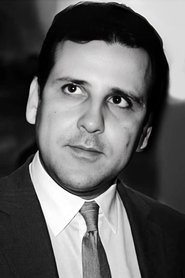Mohamed Boudia
Mohamed Boudia (in Arabic: محمد بوديا), born February 24, 1932 in the Casbah of Algiers and died June 28, 1973 in Paris 5th, is a playwright, militant and Algerian independence activist and of the Palestinian cause.
Mohamed Boudia, a kid from the Casbah, left school at the end of primary school, went to shine shoes or sell newspapers. In the mid-1940s Boudia experienced his first arrest: while an apprentice tailor, he was sent to a juvenile prison for having robbed his boss of the exact amount that the latter refused to pay him. This event would be the first milestone in his personality as an activist. Upon his release, he was taken in by a social action office for the integration of young people: there he met Mustapha Gribi, who took him in and introduced him to theater.
He entered the regional center of dramatic art in Algiers but had to go into exile in Dijon for his military service. It was during this that the revolution broke out. Boudia constantly went back and forth between politics and theater. These plays were linked to the quest for Algerian independence. From 1955 to 1957, theater was a political fight for him. At that time, several people from the theater world involved in nationalist movements served as a standard for the Algerian question in the major French cities. Mohamed Boudia and his friend Mohamed Zinet formed a duo of agitators. They actively participated in the actions of the French Federation of the FLN, making the objectives and positions of the nationalist movement known to the public. Married, he returned to Paris and the French section of the FLN. He was sent to Marseille, where he blew up the Mourepiane oil depots. Arrested, he was tried by the permanent tribunal of the armed forces in Marseille and defended by the FLN Defense Collective, of which Jacques Vergès was a member. He was then sent to the Baumettes prison in Marseille and then to the Fresnes prison where he served most of his sentence between 1960 and 1961.
His two plays Naissances and L’Olivier were written in prison: Boudia organized himself with his fellow prisoners, using theater as a form of resistance to incarceration, both physical and moral. He translated Molière’s Le Malade imaginaire into Algerian, which he performed in front of nearly 1,000 prisoners. Transferred to Angers prison, he escaped in 1961 with the help of the organization and French aid networks for the FLN. He returned to Algiers in 1962, where he became general administrator of the Algerian National Theater. Mohamed Boudia drew on his daily life for the resources to imagine an Algeria freed from the colonial yoke, nourished by the reality of the most modest, which led him to write: "The workers and peasants continue the sacrifices and expect intellectuals to join them on the ground of reality, outside of speculations and confusing schemes." In 1965, Mohamed Boudia traveled by train to the cities and villages of Algeria, performing plays in the Algerian language so that everyone could understand them.
In 1969, for example, Mohamed Boudia espoused the Palestinian cause. The Mossad and the Israeli government accused him of being one of the masterminds of the hostage-taking of Israeli athletes at the Munich Olympics in 1972. He was assassinated by the Israeli secret services on June 28, 1973 in Paris 5th.
Azwiho: Acting
Isabukuru: 1932-02-24
Aho yavukiye: Algiers, Algeria
Birazwi kandi: محمد بودية

 11tv.pw
11tv.pw
